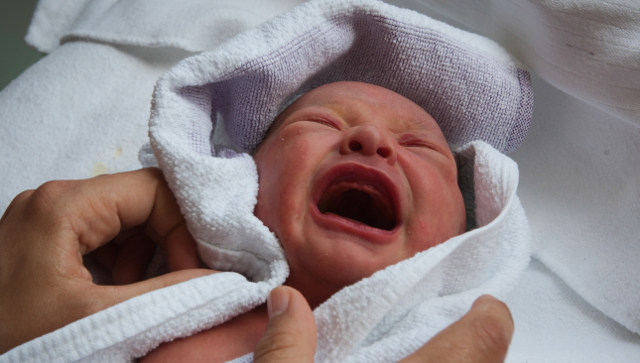This week the French government banned a couple in Brittany from naming their child Derc'hen because it contained an apostrophe.
The case echoed that of another baby from Brittany, Fañch, whose name was banned by a French court last year because it contained a tilde, an “n” with a small sideways “s” above it – ñ.
In both cases, the Breton authorities defended the families and called the banning of Derc'hen an “intolerable linguistic discrimination”.
But why aren't the French allowed to give their children a Breton name?
Here are the rules for naming your baby in France.
READ ALSO:
- France bars Breton baby name over an apostrophe
- French court bans couple from using Breton letter in baby's name

The first name must be written in French
In July 2014 a circular was sent around by the government saying that first names must be in French, referring to a 1794 law which ruled that French is the only language of the administration.
This text was quoted by the court of Quimper in Brittany to ban the name “Fañch” in September.
More specifically, that means that “only the Roman alphabet can be used and that the only accepted accents are the dots, umlauts (¨), accents and cedillas belonging to the vowels and consonants authorized by the French language”.
So that means goodbye to the tilde and the apostrophe.
The first name must not go against the interest of the child
Since 1993, France hasn't had a list of authorised French names. That was abolished by President Francois Mitterrand and so parents can choose foreign names (as long as there are no accents) as well as shortenings of names.
Parents may also “make use of a non-traditional spelling” as long as they abide by the first rule.
But they must not bestow a name on a child which is “contrary to the best interests of the child”, according to Article 57 of the Civil Code.
If the rule is not followed, the public prosecutor immediately and they can call on a family judge to have the name removed from the civil registry.
This is the rule that put a stop to names such as Titeuf, Nutella, Strawberry, Zigzag and Joyeaux (Happy).
On top of that, a child with the last name of one parents cannot have the other parent's name as a first name.
But some say that despite these two rules there's an inconsistency when it comes to upholding the law.
Fabrice Cadou, a member of the Skoazell Vreizh association (“Secours Breton” and Breton Rescue in English) . which supports the families of little Fañch and Derc'hen, denounces the “hypocrisy of the administration”.
“The name Derc'hen has already been validated umpteen times by civil status before the circular was passed around. Other names like Goulc'han, Melc'han or Berc'hed exist and have been validated in Rennes. Just like West African-sounding first names using the n '… How is it that in some municipal services, this circular of 2014 is not applied?” he told 20 Minutes.
This could be down to public prosecutors being stricter in certain regions.
But for the moment, if you're living in France you might want to think twice before taking on the French authorities with an unusual baby name.




 Please whitelist us to continue reading.
Please whitelist us to continue reading.
Member comments